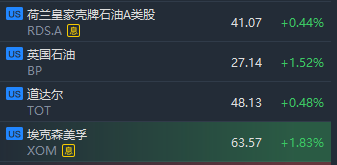(May 10) The Dow Jones Industrial Average climbed to a record high on Monday, building on the benchmark’s recent strong rally.
The blue-chip gauge popped 170 points to a intraday record high, boosted by a jump in Dow Inc and Chevron shares. The S&P 500 traded near the flatline after closing at a record in the previous session. The Nasdaq Composite fell 0.8%, however, as Big Tech stocks came under pressure.
Gasoline futures rose after a ransomware attackforced theclosure of the largest U.S. fuel pipelineover the weekend. Colonial Pipeline, which operates a 5,500-mile system, said it was forced to halt the transport of fuel from the Gulf Coast to the New York metro area on Friday as it “took certain systems offline to contain the threat.” Colonial said Sunday evening that some of its smaller lateral lines once again online, but that its main lines are still shut down.
Shares of energy stocks gained in the premarket including Marathon Oil, Occidental Petroleum and Devon Energy. Chevron was up 1% in early trading and set to give a boost to the Dow. Exxon was also higher in early trading.
Bigger tech stocks declined in early trading, however, weighing on sentiment. Tesla was down 1%. Oracle lost nearly 1% after adowngrade from Barclays. Facebook and Alphabetwere also lower after a downgrade by Citigroup.
Last week, the Dow rallied 2.7% and the S&P 500 gained 1.2%. Despite a 0.9% rally on the week’s final session, the Nasdaq Composite shed 1.5% over the same period.
The late-week optimism came despite a far-weaker-than-expected April jobs report, which showed that U.S.employers added 266,000 net payrollslast month. Economists polled by Dow Jones had expected 1 million additions.
Mike Wilson, chief U.S. equity strategist at Morgan Stanley, noted that traders appear to have already priced a robust economic reopening thanks to declining Covid-19 cases. Any news that could threaten that narrative could quickly impact where portfolio managers allocate cash
“We’re watching expectations vs reality with the market now well priced for reopening. On a cumulative basis, retail sales are above where they would have been on pre-COVID trends – suggesting some expectations risk around the pent up demand narrative,” Wilson wrote over the weekend.
“The labor market has less slack than is typical at this point in the cycle,” he added. “We recommend moving up the quality curve and adding more defensive balance as the market shifts toward mid-cycle leadership.”
The market willface a key test on Wednesdaywith the release of CPI inflation data. Investors fear a scenario where the Federal Reserve is forced to cut back its easy money policies to curb inflation, before the economy has fully recovered from the pandemic.

